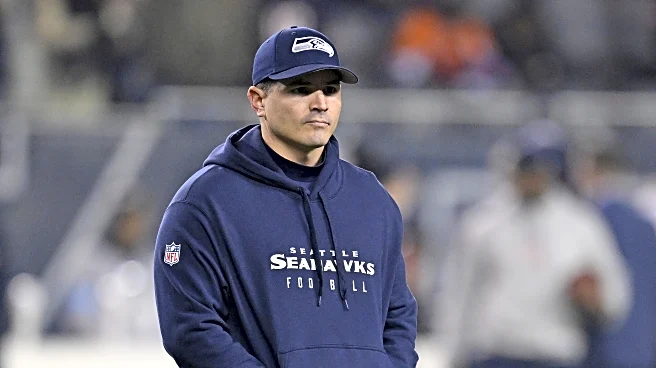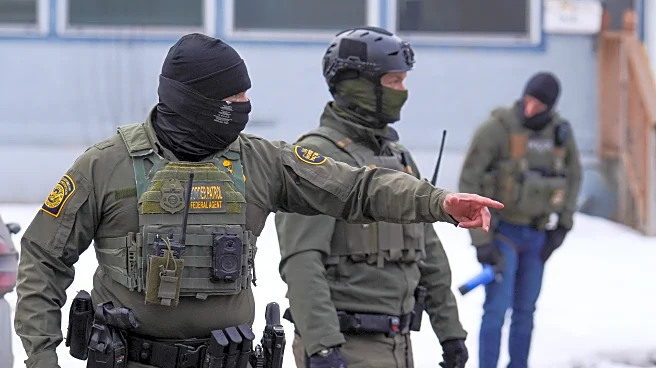What's Happening?
Tracey Connolly, the mother of Baby P, is undergoing a public parole hearing to determine her potential re-release or transfer to open conditions. Connolly was jailed in 2009 for causing or allowing the death
of her 17-month-old son, Peter, known as Baby P, after months of abuse. The hearing has included emotional victim statements from Peter's loved ones, expressing concerns about Connolly's release and requesting protective conditions if she is freed. Connolly was previously released on license in 2013 but was recalled in 2015 for breaching parole conditions. Her release in 2022 was overturned after breaching license conditions again. The case has been described as a significant child protection failure, prompting public interest in the parole proceedings.
Why It's Important?
The parole hearing of Tracey Connolly is significant due to the high-profile nature of Baby P's case, which highlighted severe child protection failures. The decision on Connolly's release could impact public trust in the justice system's handling of child abuse cases. It also raises questions about the effectiveness of parole conditions and the ability of the system to protect victims' families. The case continues to evoke strong emotions and public interest, reflecting ongoing concerns about child welfare and the accountability of those responsible for such crimes.
What's Next?
The parole board will decide whether Connolly can be re-released or moved to open conditions, considering the victim statements and public interest. If released, specific conditions may be imposed to protect Peter's loved ones. The decision could influence future parole hearings for similar cases, potentially leading to changes in how such cases are managed. Public and media scrutiny will likely continue, affecting the broader discourse on child protection and justice system reforms.
Beyond the Headlines
The case underscores the ethical and legal challenges in balancing justice for victims with rehabilitation opportunities for offenders. It highlights the need for systemic improvements in child protection and the importance of learning from past failures to prevent future tragedies. The public nature of the hearing reflects a shift towards transparency in high-profile cases, which could influence future legal proceedings.











